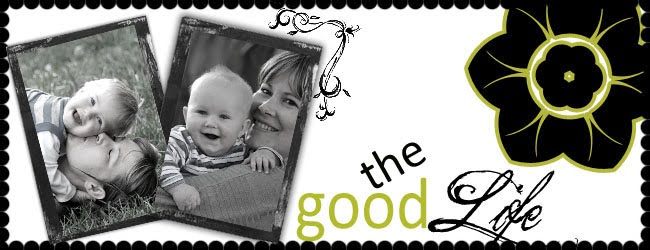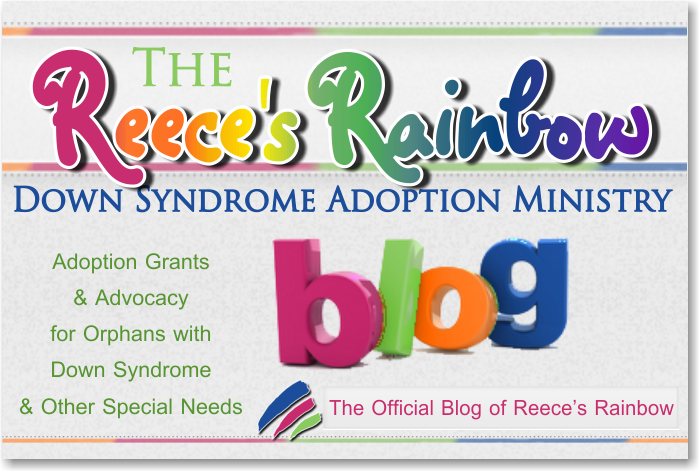Warning! Long Post...
I think that one of things I am most grateful for on my journey so far with Malakai has to be that we live in the 21st Century. While I believe that there is still a long way to go... that people still don't really see the person behind the disability... at least an awareness is growing globally and we can say a very thankful farewell to forced institutionalisation and complete marginalisation (at least in the Western World).
So, yes... I am so thankful that we are walking this path today, and not 50 years ago... I was reminded of this fact when I was recently forwarded a link to a story called 'Where's Molly?' (visit http://www.wheresmolly.net/).
This is the true story of a man who went in search of his sister, who he'd last seen decades before, when they were both young children. Just before she turned three, his sister was sent away to an institution, and when he asked his parents over and over again "Where's Molly?", he was told over and over again to forget about Molly, she was gone forever. Eventually the six year old stopped asking and it was only approximately 30 years later that he was reminded of the sister he had so longed for.
At a school reunion, a former friend and girlfriend asked him how his parents were... and how Molly was... He had not even thought about Molly for decades, and almost fell over in shock. His friend (she would eventually become his wife) could not believe that he didn't know where Molly was. It took another 10 years, and the death of both of his parents, to prompt his and his wife's search for Molly.
It didn't take too long, and information that he found in his late father's wallet and a secret file that his father kept for Molly, helped him to track his long-lost sister down.
"Pain," is how he describes his first meeting with his sister, after decades of separation. He understood immediately how his sister was an individual, with a personality, with needs... his sister.
Molly couldn't tell him about her life thus far, she had become what he described as 'institutionally retarded' - just a being, surviving as best she could. So he dug a bit deeper, trying to get some answers.
From Molly's records, he discovered that his mother had visited once a few years after she'd been placed in the institution. She never visited again - the reason for which went with her to her grave.
His father, however, could not stay away. The records showed that he visited often, but was then told to stop coming because every time he left, Molly would become completely inconsolable.
At this point of the story I struggle not to equate Molly with my own toddler son and how it would be for Malakai if we left him somewhere he didn't know, and returned to visit, only to leave again... But if I was told - and believed - that an institution would be best for Malakai... then I would also not be able to stay away from him...
So Molly's dad found an ingenious way of still being able to be part of his daughter's life. He became a clown, and would visit the institution, and entertain his daughter and the other children. All without upsetting Molly.
Today, Molly and her brother see each other regularly, and he shares how he finds fulfilment in caring for his sister, in being there for her and giving her whatever he can. His younger brother, born only after Molly was sent away, has never been interested in meeting Molly...
This story has touched me so deeply, and I know the first assumption is that these parents are poor excuses... they should never have sent their daughter away! But then I imagine the time in which they lived - the 1950's...
It was a time of unquestionable obedience. If an 'expert' told you something, you believed them. There was no internet, there was no networking, there was no question. They knew best and what they said was to be followed, unless you were immeasurably brave (which I believe a handful of parents were).
But for the most part, parents listened. The thousands of children admitted into institutions 'for the feebleminded' across the world are living and breathing proof of this. Your doctor told you that there was no hope, that your child would only cause undue stress on your other children and pose a threat to the stability of your family unit (things that we know today are completely untrue)... If you're being told this by a doctor... well then... it must be true.
These everyday parents (the immeasurably brave apart) had to tear from their breasts their beautiful 'broken' children. They had to close their eyes, and with a proverbial 'shove', discard of their flesh and blood. In this way, they became 'the brave'... because it must be almost physically impossible to do such a thing without inflicting immense emotionally and physical trauma on yourself as a parent.
So many thousands of parents had to do this for their families... Oh, the twisted 'wisdom' of those days... The damage, the trauma, the loss that the 'enlightened' medical community caused for families like yours and like mine.
Thankfully we have come full circle (for the most part), and now our children can remain within the bosom of the family, while being supported by the majority of the medical community. Mothers and fathers, brothers and sisters no longer have to live without the gifts that our children bestow upon us. No 'immeasurable bravery' is required these days... only love.
And our children... our beautiful children... are where they are meant to be. At home, in love, surrounded by support and encouragement.
This beautiful enlightenment, however, does not apply to Eastern European countries. They have not yet come to a place of understanding and acceptance. Everyday babies are born with Down syndrome and are sent to state-run orphanages. At the age of 4-6, the un-adopted children are sent to state-run institutions from which they cannot be rescued. Given only the basics in terms of food and clothing, the vast majority of these little ones die, alone, from grief and in desperation...
Please - if you want to give a gift this Christmas - why not consider donating to Reece's Rainbow (the link is on the top left of my blog). This beautiful organisation specialises in international adoptions of children with mental and physical disabilities from Eastern European countries. They find the children, help raise the funds and essentially make it possible for families to be able to adopt these little ones that are in desperate need of finding their 'forever families'. International adoption is expensive (it can cost up to R500 000), so any donation towards this can make a difference for a child's life.
This story, that happened so many decades ago, that would be impossible to imagine in our world today is very real. It still happens, everyday, in Eastern Europe. They need our help. They need our voice. They need our reason and understanding. Think about it. Imagine if this little face was just a 'number' in an institution...
Thank You Lord 5 years NED 16 January 2013
13 years ago















3 comments:
Loren, are you familiar with NORM, a documentary about a 12 year old boy with Down syndrome who was given up for adoption by his birth parents when he was 12 years old?
Only a few years before, the family had adopted a girl. This girl had a chance to bond with Norm and when he was given away, she promised to find him and be with him again.
And she did. In fact, he came to live with her and her partner eventually. He passed away recently.
When I was watching the documentary it was hard for me NOT to judge Norm's birth family. You have to keep in mind that it was his "adoptive" sister that eventually saved him from a questionable home once his adoptive parents passed away.
But during this time (I believe it was the 1950's) it was the "way of life". I am *so* grateful to live in this time...
I hope to watch "Where's Molly?" soon. It's wonderful that these siblings were reunited after decades apart!♥
The pain and suffering a mom must go through if "told" that you "had" to give up your child is unimaginable. I'm so grateful for the decade we live in!
Thank you for this post. I saw the news story on Molly and her brother. Sharing this story helps us all appreciate the times we in which we live. I also think judging people in the past by today's values is not very helpful - but we can be grateful for the values we have learned over time. Barbara
Post a Comment